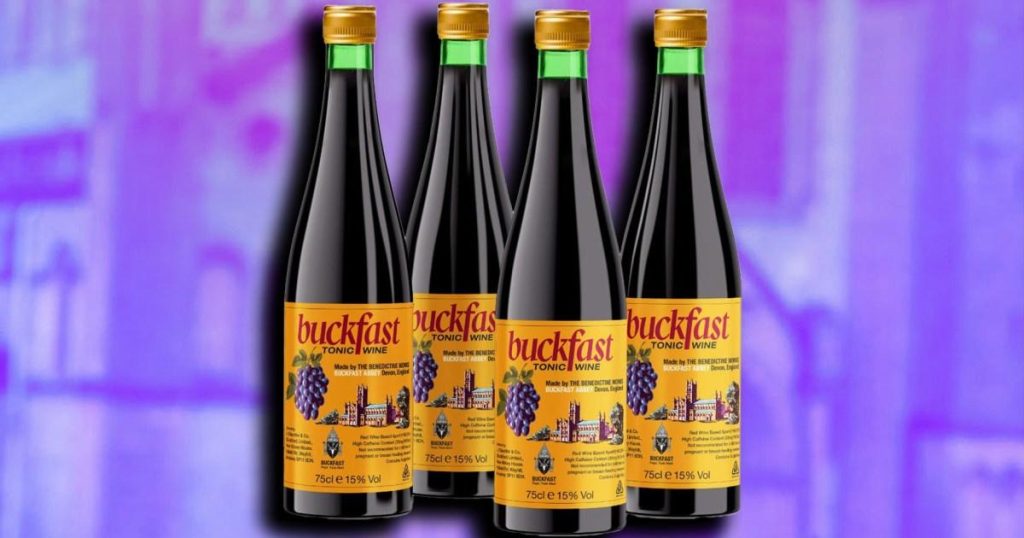Buckfast Tonic Wine, a fortified wine produced by monks at Buckfast Abbey in Devon, England, has achieved record-breaking sales figures, exceeding £55 million in the past year, representing a 12% increase despite a 44% duty hike imposed on fortified wines in the 2023 Budget. This robust performance underscores the enduring popularity of the beverage, particularly in Scotland and Northern Ireland, where it has transcended its status as a mere alcoholic drink to become a cultural icon. Buckfast’s unique blend of caffeine and alcohol, equivalent to eight cans of Coca-Cola in a 750ml bottle, contributes to its distinctive character and appeal, solidifying its place in the social fabric of these regions.
The cultural significance of Buckfast is further exemplified by its permeation into popular culture, including featuring prominently on the North American tour poster of Northern Irish rap group Kneecap, symbolizing its resonance with a younger demographic. In Scotland, affectionately nicknamed “wreck the hoose juice,” Buckfast holds a unique position, even warranting the establishment of World Buckfast Day, celebrated annually on the second Saturday of May. This demonstrates the deep-rooted connection between the drink and its consumers, transcending mere consumption to become a symbol of social gatherings and shared experiences.
However, Buckfast’s popularity is not without controversy. The drink has been linked to antisocial behavior and crime, particularly in Scotland. This association has led to scrutiny and concern, particularly from law enforcement and public health officials. In 2015, the Scottish Prison Service reported a significant correlation between Buckfast consumption and criminal offenses, with over 43% of inmates having consumed the drink prior to their incarceration, despite its relatively small market share of total alcohol sales in Scotland. This statistic highlights the complex relationship between Buckfast and its perceived contribution to social problems.
Buckfast Abbey, aware of the negative perceptions surrounding its product, has expressed concern over the irresponsible consumption of Buckfast by a minority of individuals. Acknowledging the link between the drink and antisocial behavior requires a nuanced approach. While Buckfast itself is not inherently responsible for criminal acts, its high alcohol and caffeine content, coupled with pre-existing social factors, may contribute to impulsive behavior in certain individuals. This necessitates a balanced perspective, acknowledging both the cultural significance and the potential social consequences associated with the drink.
In an attempt to reshape its public image and distance itself from the negative connotations, Buckfast’s producers have embarked on a campaign to reposition the drink as a versatile ingredient for culinary purposes. Collaborating with renowned chef Martin Blunos, Buckfast has showcased its potential as a cooking wine, highlighting its versatility and attempting to broaden its appeal beyond its traditional consumer base. This strategic move aims to reframe the narrative surrounding Buckfast, emphasizing its culinary applications and shifting the focus away from its association with antisocial behavior.
Despite the controversy and the ongoing debate surrounding its social impact, Buckfast remains a popular beverage, deeply ingrained in the cultural landscape of certain regions. Its enduring appeal, fueled by its unique blend of caffeine and alcohol, its affordability, and its cultural significance, ensures its continued presence in the market. The efforts to reposition Buckfast as a culinary ingredient demonstrate a proactive approach to address negative perceptions while acknowledging the drink’s established place in popular culture. The future of Buckfast may involve a delicate balancing act, navigating the complexities of its cultural significance while mitigating the potential for its misuse.


